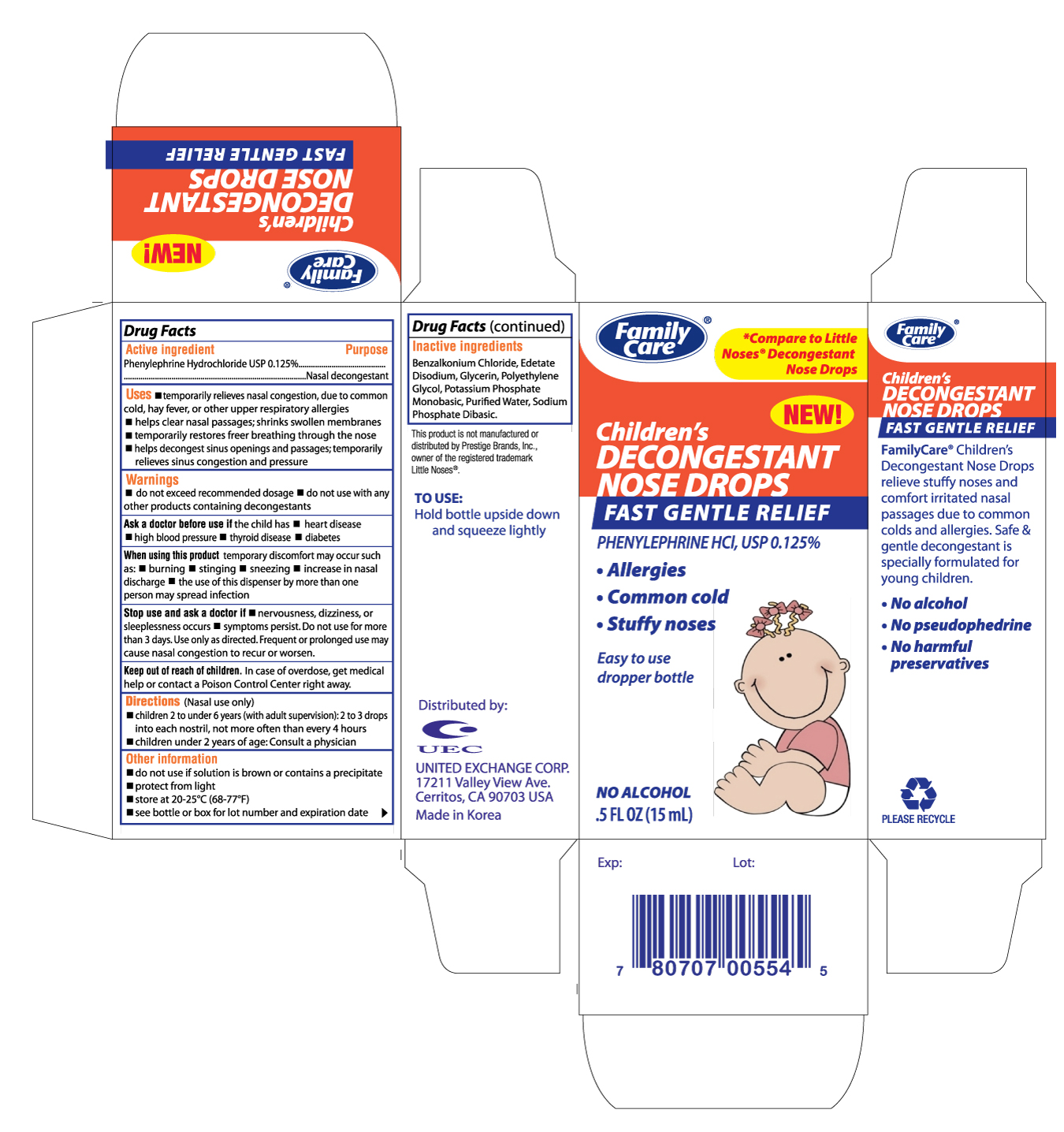Family Care Childrens Decongestant Nose Drops | Phenylephrine Hydrochloride Solution while Breastfeeding

What is Family Care Childrens Decongestant Nose Drops | Phenylephrine Hydrochloride Solution ?
Purpose: Uses temporarily relieves nasal congestion, due to common cold, hay fever, or other upper respiratory allergies helps clear nasal passages; shrinks swollen membranes temporarily restores freer breathing through the nose helps decongest sinus openings and passages; temporarily relieves sinus congestion and pressure
Can I use Family Care Childrens Decongestant Nose Drops | Phenylephrine Hydrochloride Solution while breastfeeding?

Family Care Childrens Decongestant Nose Drops | Phenylephrine Hydrochloride Solution Breastfeeding Analsys
Phenylephrine hydrochloride while Breastfeeding
Low RiskCAS Number: 59-42-7
Used on topical decongestant solutions for nose drops at low concentration. 10% midriatic eye drops are available. Because low concentration is used on nose and ophtalmic drops a significant excretion into breast milk is unlikely. Low oral biodisponibility minimizes any risk of harmful effect in the infant. Authorized for nasal or ophtalmic use on children aged younger than 1 year. Although on latest update relevant data on breastfeeding was not found it is considered to be safe when minimal dose is used. Avoid excessive or long term use. A related drug Pseudoephedrine can inhibit milk production. It would be advisable to press on the lachrimal sac to minimize absorption.
Family Care Childrens Decongestant Nose Drops | Phenylephrine Hydrochloride Solution Breastfeeding Analsys - 2
Phenylephrine hydrochloride while Breastfeeding
CAS Number: 59-42-7
The oral bioavailability of phenylephrine is only about 40%,[1] so the drug is unlikely to reach the infant in large amounts. However, intravenous or oral administration of phenylephrine might decrease milk production. Because no information is available on the use of oral phenylephrine during breastfeeding, an alternate drug may be preferred, especially while nursing a newborn or preterm infant.Phenylephrine nasal spray or ophthalmic drops are less likely to decrease lactation. To substantially diminish the effect of the drug after using eye drops, place pressure over the tear duct by the corner of the eye for 1 minute or more, then remove the excess solution with an absorbent tissue.
What if I already have used Family Care Childrens Decongestant Nose Drops | Phenylephrine Hydrochloride Solution?
During whole lactation period you shall first discuss with your doctor and then together you shall decide whether you shall take that drug or not however if you have already taken Family Care Childrens Decongestant Nose Drops | Phenylephrine Hydrochloride Solution then you shall inform your doctor, But you should not be worried too much as Family Care Childrens Decongestant Nose Drops | Phenylephrine Hydrochloride Solution comes in category of low risk drug.
My doctor has prescribed me Family Care Childrens Decongestant Nose Drops | Phenylephrine Hydrochloride Solution, what should I do?
Family Care Childrens Decongestant Nose Drops | Phenylephrine Hydrochloride Solution comes in category of low risk and if your doctor is aware that you are breastfeeding it should be ok to use
If I am using Family Care Childrens Decongestant Nose Drops | Phenylephrine Hydrochloride Solution, will my baby need extra monitoring?
Not much
Who can I talk to if I have questions about usage of Family Care Childrens Decongestant Nose Drops | Phenylephrine Hydrochloride Solution in breastfeeding?
US
National Womens Health and Breastfeeding Helpline: 800-994-9662 (TDD 888-220-5446) 9 a.m. and 6 p.m. ET, Monday through Friday
UK
National Breastfeeding Helpline: 0300-100-0212 9.30am to 9.30pm, daily
Association of Breastfeeding Mothers: 0300-330-5453
La Leche League: 0345-120-2918
The Breastfeeding Network supporter line in Bengali and Sylheti: 0300-456-2421
National Childbirth Trust (NCT): 0300-330-0700
Australia
National Breastfeeding Helpline: 1800-686-268 24 hours a day, 7 days a week
Canada
Telehealth Ontario for breastfeeding: 1-866-797-0000 24 hours a day, 7 days a week
